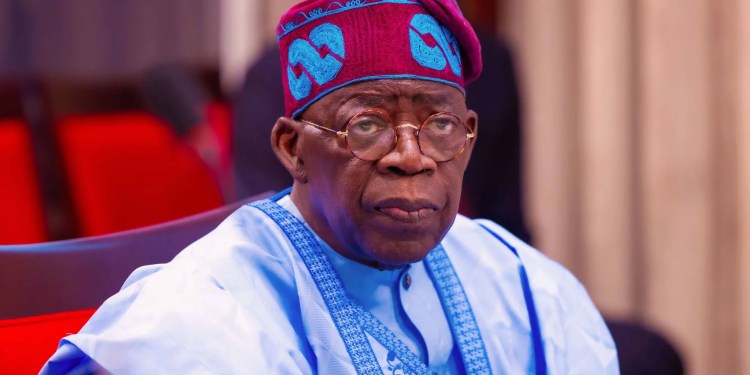Abuja—President Bola Ahmed Tinubu is set for a crucial test of political strength as the National Assembly convenes today to decide on his request for an Emergency Rule. With the constitutional requirement demanding a two-thirds majority in both chambers, Tinubu must secure the approval of 72 out of 109 Senators and 240 out of 360 House of Representatives members to validate his directive.
Tough Numbers Game in the Senate and House
The current composition of the National Assembly presents a significant challenge for the President:
Senate Composition:
APC – 58
PDP – 37
Labour Party (LP) – 7
Social Democratic Party (SDP) – 2
New Nigeria Peoples Party (NNPP) – 2
All Progressives Grand Alliance (APGA) – 1
African Democratic Party (ADP) – 1
Vacant Seat – 1


With 58 APC senators, the ruling party falls 14 votes short of the required 72 votes. Even with full party discipline, Tinubu needs strong cross-party backing, a daunting task given rising opposition concerns.
House of Representatives Composition:
APC – 175
PDP – 118
LP – 35
NNPP – 19
APGA – 5
ADC – 2
SDP – 2
YPP – 1
Vacant Seats – 3
In the House, APC’s 175 members leave a 65-vote gap to meet the 240-vote threshold. This means Tinubu must secure backing from at least 65 opposition lawmakers, a steep challenge amid growing political divisions.
Legal and Political Complications
Adding another layer of complexity, President Tinubu has already sworn in a Sole Administrator before obtaining legislative approval. This move raises serious constitutional concerns, as it suggests an attempt to bypass the National Assembly, fueling resistance from lawmakers.
Legal analysts warn that if the Emergency Rule is not approved today, the Sole Administrator’s authority becomes legally questionable. Opposition leaders are already mobilizing to challenge the move, setting the stage for a major legal and political battle.


What Happens if Tinubu Fails to Secure Approval?
If the National Assembly fails to approve the Emergency Rule today, the directive automatically expires, as the law allows only two days for deliberation while in session. This creates a constitutional crisis with serious implications:
1. Legal Status of the Sole Administrator – Without legislative backing, the Sole Administrator’s appointment becomes null and void. He would have no legal authority to govern, and any decisions made under his leadership could be challenged in court.
2. Enforcement Dilemma: Who Can Remove Him? – If the Sole Administrator refuses to step down, it could create a standoff. As a military officer with full armed protection, removing him could escalate tensions. The police and military may be reluctant to act without clear legal backing.
3. Possible Court Intervention – Opposition leaders, civil society organizations, or affected parties may seek an injunction declaring the Sole Administrator’s tenure illegal. However, enforcement could be difficult if he remains backed by federal authorities.
4. Clash Between Federal and State Authorities – If the National Assembly rejects the Emergency Rule, state institutions may refuse to recognize the Sole Administrator, leading to a power struggle. Will federal security forces enforce his authority against state-level opposition? That remains a key question.

How Similar Crises Were Resolved in Other Countries
This situation mirrors past constitutional crises in other nations:
Pakistan (2007) – Pervez Musharraf declared an emergency, dismissed judges, and faced legal and public backlash. He was forced to resign after the Supreme Court ruled against him.
Peru (2022) – President Pedro Castillo tried to dissolve Congress illegally. Lawmakers impeached him immediately, and security forces arrested him.
The Gambia (2017) – Yahya Jammeh refused to step down after losing an election and declared an emergency rule. Regional military forces (ECOWAS) intervened, forcing his exile.
A Brewing Constitutional Showdown
If Tinubu fails to secure approval, he faces two difficult choices:
1. Withdraw the Sole Administrator and seek a political compromise.
2. Attempt to retain him, triggering legal and security conflicts.
The next few hours will determine whether Nigeria averts a full-blown constitutional crisis or descends into an unpredictable power struggle.
Dr. G. Fraser. MFR
Headlinenews.news
Founder, The National Patriots.




